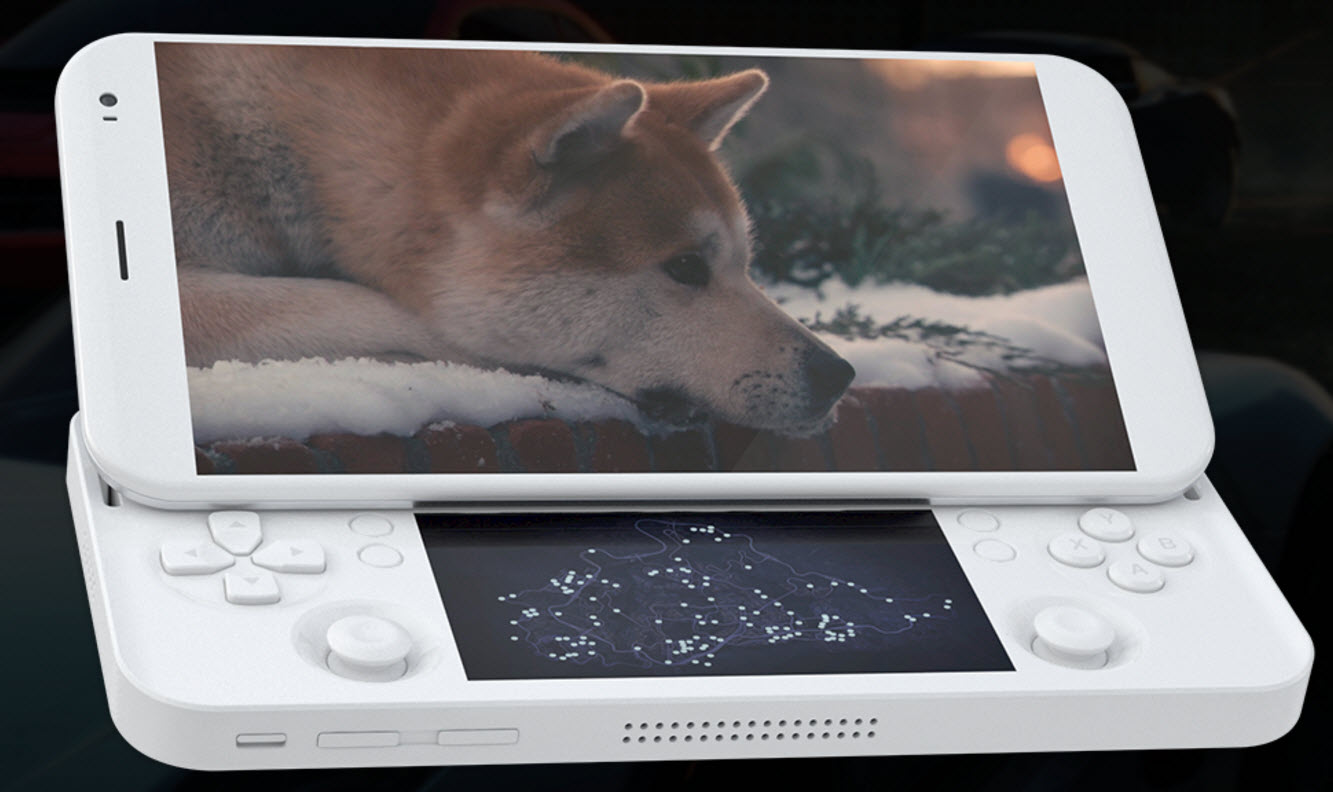PGS Labs has announced a smartphone-sized gadget that is designed to play games, but with the power and compatibility of PC games and which will ship in Q2. The device is 15mm thick and can boot either Windows 10 or Android 6.0, or can have both live with single switch swapping. As well as running games locally, the PGS is said to be optimised for streaming from Steam, PS4 or XBox One.
The design has standard controls built in for instant gaming. One version also has a second 3.2″ IPS display, supported as a second display by Windows 10, that supports touch and can act as an additional display or can be used for other functions.
The device is available with 5.9″ FullHD (PGS Hardcore) and 5.5″ 720 x 1280 (PGS Lite) IPS LCD versions driven by an Intel Atom x7-Z8750 2.56GHz processor combined with a Mediatek Helio X2X 2.5GHz to run Android. The Hardcore has 8GB of RAM to run Windows 10 and 3GB for Android while the Lite has 4GB and 2GB. Flash storage is 128GB and 64GB, respectively for Windows and 32GB and 16GB for Android. There is a full set of radios for LTE and GPS to support Android operation as a smartphone.
Connectivity is via USB Type C/microHMDI combo.and as the device has connectivity, a wireless keyboard and mouse and a monitor can be connected so that the device can be used as a PC. The PGS Hardcore has active cooling that cuts in when games are being played. The battery is 6800 mAh or 4080 mAh depending on the version.
 The PGS Hardcore has two CPUs, two displays and two OSes! Click for higher resolution
The PGS Hardcore has two CPUs, two displays and two OSes! Click for higher resolution
Analyst Comment
We wrote this story up as we got advice that this device was due out at the end of Q2 2017. However, when we clicked on the ‘pre-order’ button on the website to find out the pricing. Nothing happened. In doing our ‘due diligence’, we found that the company had an, apparently successful Kickstarter campaign ($302K raised against a target of $100K). However, the project was cancelled at the last minute in July last year as the company said it was going to take another approach. So, whether this device ever sees the light of day is an open question. (BR)

